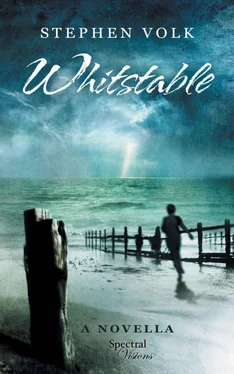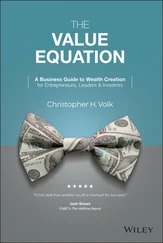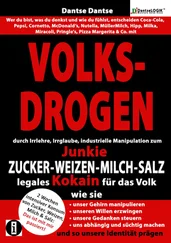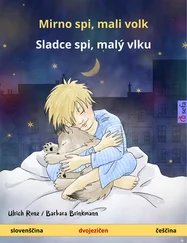The door opened, the turn of the handle surprisingly sibilant, and a thick-set man entered wearing a brown suit, beige shirt and mustard tie. The shirt had been acquired when he had less of a paunch, and consequently the buttons were under stress and had tugged the ends out above his belt. He ran his index fingers round the rim of his trousers to re-insert them before settling his rump in the chair at the table. His socks and some inches of bare, hairless leg were exposed above slip-ons.
“Peter.”
“Derek, dear boy…”
“Did you get my card?” The man, in his thirties, had hair slicked back with Brylcreem, and his fluffy growth of incipient sideburns was both ginger and ill-advised.
“Yes.” In fact, Cushing knew full well it was with all the other cards, in a pile on the bureau, unopened. He was an actor. He would act. “Thank you so much.”
Inspector Derek Wake did not waste time.
“What can I do for you?”
His bluntness bordered on sounding like impatience. Whether the policeman was particularly busy or merely lacking in sensitivity, Cushing didn’t want to consider. Perhaps neither man wanted to indulge in the ritual of feigned sympathy, feigned appreciation. Anyway it was unimportant. That was not why he was here.
He had been to the Inspector before for advice when preparing for a part. Usually he was greeted with a measure of perky, hand-rubbing delight, doubtless providing as it did a welcome diversion from the normal, irksome jobs officers of the law are tasked to perform, many of them unpleasant, many downright dangerous. Advising on a screenplay was many things, however ‘dangerous’ was not one of them. But today Wake was taciturn. Perhaps he had too many things of greater importance on his plate. Cushing didn’t imagine meeting a man recently bereaved would make a seasoned copper awkward or restless, given his profession, but perhaps it did. Perhaps this is how he showed it.
He’d brought a few pages of script from Scream and Scream Again , the Christopher Wicking draft. He was taking a gamble that Wake hadn’t seen the film and didn’t know it had already been made and released a year ago. He’d torn off the title page and said the film was called Monster City —not a bad title, he thought: he’d been in worse. His role had been Benedek, a Nazi-like cameo with only a couple of scenes, but he told Wake he was lined up to play the Alfred Marks part, Superintendent Bellaver, the Scotland Yard detective given the run around by a spate of vampiric serial murders.
For a full three-quarters of an hour he asked the policeman questions about playing Bellaver. How would he address his assistants? How would he talk to a murder suspect? Whether a line seemed plausible. Whether another was properly researched. And when Wake replied, he scribbled notes copiously in the margins, underlining or circling the text, double-underlining on occasion, when he received details of special, usable significance. This, he knew, would please Wake as a kind of flattery. These days people’s hearts were warmed by an affiliation to Hollywood in the way that past generations were by touching the hem of royalty. But, of course it was all nonsense. He wasn’t the slightest bit interested in the Inspector’s advice, and was hardly listening to his answers. The important questions—the vital questions—were yet to come. He was treading water, if the man but knew it. He had a plan. And it was nothing to do with the neatly-formatted pages in front of him.
“Well, thank you. You’ve been most helpful. I shan’t take any more of your time.” Cushing rose from the chair. “I’m sure you have better things to do than talk to me.” He shook hands in his sincere, country-parsonish way, buttoned up his coat and moved to the door. Whereupon he paused, his fingers fluttering next to his mouth—perhaps too theatrical a gesture?—before turning turned back to the seated detective.
“Yes?”
“Actually there’s another script. Not a script, a story treatment I’ve been sent by a film company. Very intense. Very troubling. I’m not at all sure I shall accept the part, but…” He hesitated, tugged his lower lip, waved his hand as if dismissing the idea, criss-crossing his scarf on his chest, showing Wake his back then peeking back over his shoulder. “I feel in my bones the writer hasn’t really done his homework. In a legal sense.”
“Well, here I am. Run it by me. I’ll be able to tell you if it rings true. In a police sense, at least.”
“Are you sure? I don’t like to—”
“Not at all. I enjoy it. You know I do. It livens up my tea break. Fire away.”
“Very well.” He sat back down and placed his fingertips together in a steeple. Very Sherlock Holmes. Too Sherlock Holmes? “This is a Canadian production. The lead is a Canadian actress who plays the mother. But they might film it in this country.” He didn’t like improvising, but in this instance an off-the-cuff quality was essential. The telling details were most important in a barefaced lie. “I play a headmaster. I suppose it’s essentially a version of M .” No flash of recognition. “The Fritz Lang film?” Still nothing. “The Peter Lorre movie? Set in Germany?”
“Oh.”
“Have you seen it?”
“Yes, of course.” Clearly he hadn’t. “Remind me what it was about again.”
“Lorre plays a disturbed man. A man who kidnaps and murders children. A child molester who becomes hunted down by society. A horrible character, paradoxically portrayed as sad and lonely and even strangely sympathetic.”
“No, I’ve never seen it.” The policeman stood up. “Why would anyone want to see a film about that?”
“These things happen in the world, I suppose.”
“All the more reason not to put them in films. I go to the pictures to enjoy myself, I don’t know about you.” He stood, running his fingers round the rim of his belt yet again. “What did you want to ask me?”
“My, er, character has evidence against the, um, perpetrator…” His confidence had wavered. He speeded up his delivery. “In the story, I mean. Incriminating evidence. This is the crux of the plot. Evidence against a family member, not the vagrant who has already been arrested. And I’m curious. What would be the correct police procedure in a case like this?”
Wake shrugged, and having arranged his shirt and trousers to his temporary satisfaction, adjusted the knot of his tie. “We’d have to investigate. Long process. Doctors’ reports. Court. It’s complex. You’ll have to give me the exact details and…”
“Everyone would be interrogated.”
“Questioned. Yes. Obviously.”
“And the boy?”
Another shrug. “Taken into care, straight off, any sniff of evidence. Whoosh. Can’t take the risk. Get him out of there.” The lick of a lighter on a cigarette tip. Secreted back in the jacket pocket. Smoke directed at the ceiling. “Mum and dad can squabble till the cows come home. Right little cheerful movie this is going to be. Not a comedy, I take it.”
“No.”
“No. Too right.” With his hands on his hips now, the belly jutted unabashed. “Nobody does well out of these cases, I can tell you. Nobody goes home smiling, put it like that. Families get broken up, pieced together again. Except you can’t piece them together again, can you? Worst of it is, unless you virtually catch the bloke red handed, it’s one person’s word against another, and often as not even the kid won’t speak up against their own parent, even if they half kill them on a daily basis. And the mum sticks up for the feller like he’s a bloody angel. So they get off scot free. Buggered up it is, really buggered up. To be honest, I hate it, more than anything.” More smoke, through teeth this time. Breath of a quietly-seething dragon. “Sooner string them up and have done with it, ask me. Know the bloody liberals say, what if there’s a miscarriage of justice? I say, tell you what. Cut their bloody balls off they won’t do it again. I guarantee that.”
Читать дальше












